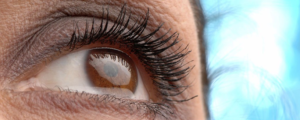When it comes to eye health, knowing where to turn for help can be a bit murky. You might find yourself wondering: Can you visit urgent care for an eye infection? Or should I go to urgent care for pink eye?
The truth is, that many common eye problems can be addressed at urgent care facilities, offering relief when your primary doctor isn’t available. But with so much conflicting information out there about treating eye issues—like whether it’s safe to treat injuries at urgent care or how sudden vision changes are handled—it’s essential to understand what these convenient medical centers can offer.
Let’s dive into the world of urgent care and clarify what types of eye issues they can manage, how they do so effectively, and when it may be best to seek specialized treatment instead. Your eyes deserve the best care possible; let’s figure out how you can get it!

Understanding Urgent Care Facilities
Urgent care facilities fill the gap between primary care and emergency rooms. They provide accessible medical services for non-life-threatening conditions, often with extended hours. This makes them a popular choice for patients who need prompt attention but don’t require hospital-level care.
These centers are typically staffed by trained professionals, including physicians and physician assistants. They can handle a variety of health concerns efficiently—often without requiring an appointment.
One major advantage is their ability to handle walk-in patients, which means you don’t have to wait days or weeks for an appointment. Many urgent cares also offer on-site lab tests and imaging services, allowing quick diagnosis and treatment.
While they are equipped to address many common ailments, understanding their limitations is crucial when it comes to specialized eye issues or severe symptoms that may need more advanced intervention.
What Eye Issues Can Be Treated at Urgent Care?
Urgent care facilities are equipped to handle a variety of eye issues. Common conditions include pink eye, or conjunctivitis, which is often contagious and requires prompt attention.
Foreign objects in the eye can also be addressed at urgent care. These incidents happen frequently and may lead to irritation or injury if not removed properly.
Another issue treated is allergic reactions affecting the eyes. Redness, swelling, and itchiness can be alleviated with appropriate medications provided on-site.
For minor injuries like scratches or abrasions on the cornea, urgent care centers have trained staff to assess and manage these problems efficiently.
If someone experiences sudden vision changes without obvious cause, they should visit an urgent care facility for immediate evaluation. The staff can provide initial assessments while determining if further treatment is necessary elsewhere.
When to Go to Urgent Care for Eye Problems
Recognizing when to visit urgent care for eye problems is crucial for timely treatment. If you experience sudden vision changes, such as blurriness or double vision, seeking immediate help is essential. These symptoms could indicate a more serious condition.
In addition to vision changes, if you have severe eye pain that doesn’t subside with over-the-counter remedies, it’s wise to get checked out. Eye injuries from accidents or foreign objects also warrant a trip to urgent care.
For conditions like pink eye or other signs of infection—redness, discharge, and swelling—urgent care can provide quick relief and appropriate medication.
If your eyes are experiencing significant discomfort due to allergies or prolonged exposure to irritants, visiting an urgent care facility may be the right choice as well.
Common Treatments for Eye Issues at Urgent Care
Urgent care facilities can handle a variety of eye issues effectively. For minor infections, like pink eye, they often prescribe antibiotic eye drops to help clear up the condition quickly.
If you have experienced an injury, urgent care clinics may provide immediate treatment. They might flush out foreign objects or debris and assess any damage to the cornea. Pain relief options are also available for those suffering from discomfort.
For sudden vision changes, professionals at these centers can conduct preliminary assessments. While they won’t perform extensive tests, they will determine if further evaluation is necessary.
In cases where dry eyes or allergies irritate, urgent care providers may recommend lubricating eye drops or antihistamines as part of your treatment plan. It’s crucial to address these symptoms promptly for comfort and relief.
Tips for Choosing the Right Urgent Care for Your Eye Problems
When selecting an urgent care facility for your eye problems, check if they have specialized staff trained in ophthalmic issues. Not all clinics are equipped to handle delicate eye conditions.
Look for facilities that offer extended hours and a reputation for quick service. Eye issues can escalate quickly, so prompt attention is crucial.
Read reviews online or ask friends and family for recommendations. Real-world experiences can guide you toward reliable options.
Inquire about the types of treatments available. Some urgent cares might provide prescriptions for eye drops or treat infections like pink eye effectively.
Consider proximity—choosing a clinic near your home or workplace can save valuable time during emergencies.
Alternative Options for Eye Treatment
If urgent care isn’t the right fit for your eye issues, there are other avenues to explore. Primary care physicians can provide initial assessments and referrals if necessary. They often have a broader understanding of your overall health.
Optometrists specialize in vision problems and can address many common eye conditions. They offer comprehensive exams and prescribe corrective lenses as needed.
For more complex or severe cases, an ophthalmologist is the way to go. These medical doctors focus on surgical interventions alongside routine eye care.
Home remedies may also serve as temporary relief for minor irritations—think cool compresses or saline rinses for dryness. However, it’s crucial not to rely solely on these without professional advice.
Telehealth options are becoming increasingly popular too, allowing you to consult with professionals from home about minor concerns before deciding on further treatment steps.
Conclusion
If you experience sudden vision changes or persistent symptoms, don’t hesitate to consult a healthcare professional. They can provide guidance on whether your situation warrants immediate attention at urgent care or if it’s better suited for specialist evaluation.
Remember that while urgent care offers valuable services and may prescribe necessary medications like eye drops, there are limitations in treating complex ocular issues. It’s crucial to choose the right facility based on your needs and ensure you’re getting appropriate care when required.
Being proactive about your eye health leads to better outcomes, so stay informed and prioritize timely treatment whenever possible.



